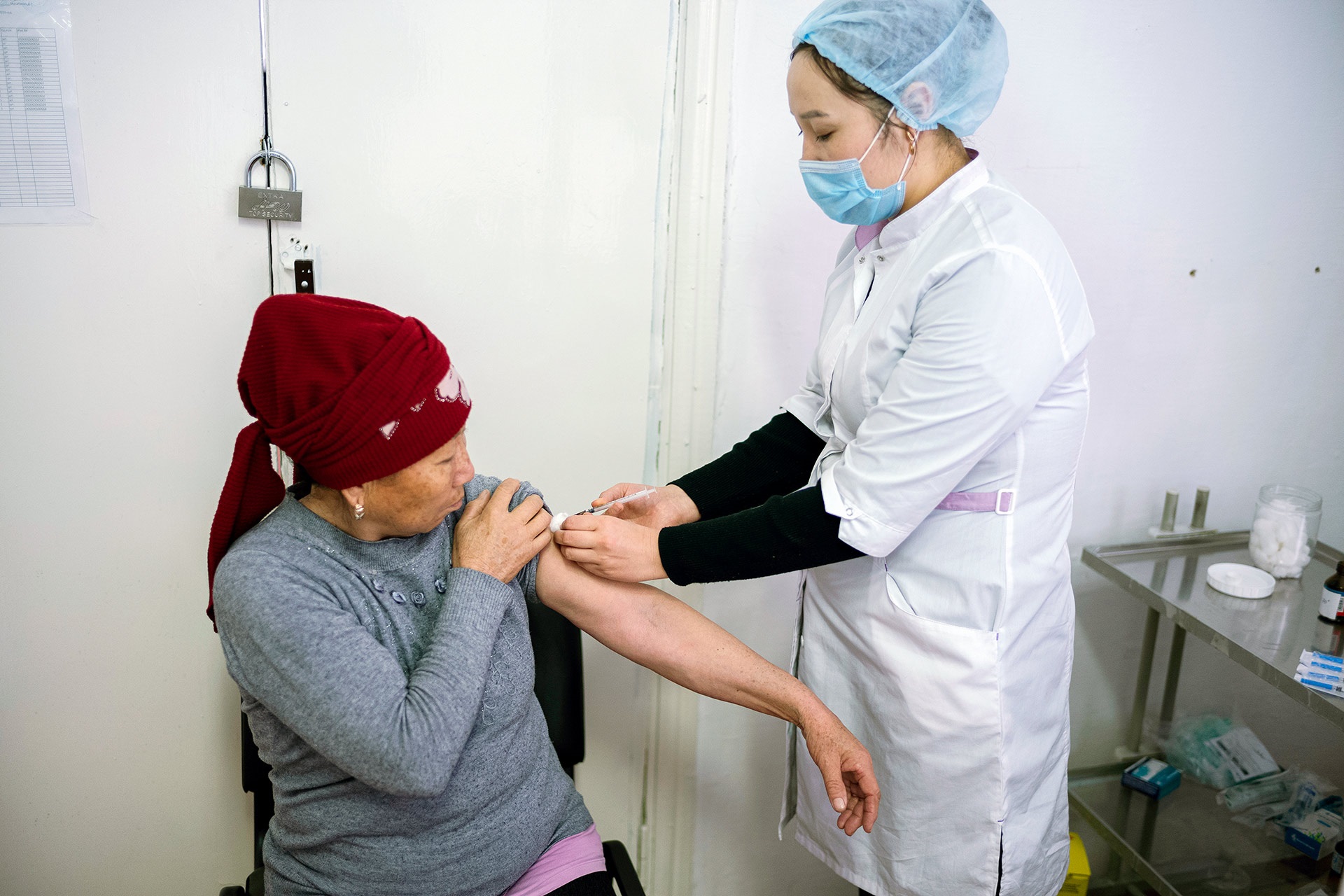
Preventing a triple threat this autumn and winter:
applying lessons and understanding individual risk to protect ourselves and others from respiratory illness
9 October 2024–31 March 2025
Every year, WHO/Europe calls on individuals, communities and governments to protect their most vulnerable during autumn and winter. Since the onset of COVID-19, our populations have been exposed to a triple threat of 3 main co-circulating viruses: COVID-19, influenza and respiratory syncytial virus.
These viruses can affect anyone, anywhere. However, certain groups – older people, pregnant women, immunocompromised people and those with chronic conditions – are at a higher risk of experiencing severe consequences.
The good news is that the pandemic has shown us how to keep ourselves and others safer. We have learned the measures and acquired the experience to manage the impact these respiratory illnesses have on populations across the WHO European Region.
It remains our collective responsibility – both as governments and societies – to ensure protective measures are implemented, including vaccination. Together, these measures are the best way to prevent hospitalizations and death.
“No one knows your risk like you do”
A new risk communication campaign “No one knows your risk like you do”, to be launched by WHO/Europe on 9 October, will empower individuals to evaluate their personal risks, nurturing confidence in their ability to make informed decisions for themselves and their community.
Since the Region has transitioned out of the emergency phase of the pandemic, it is time to leverage what we have learned and normalize protection against all respiratory viruses.
The campaign highlights the importance of simple actions that all of us can take on a daily basis to protect ourselves and others. It especially encourages at-risk groups to recognize their vulnerability and the protection they need.
Safeguarding health systems
As health systems continue facing shortages in the health and care workforce, we are reminded that we may be unprepared for anything out of the ordinary, and for the continued impact of long COVID.
The COVID-19 pandemic has shown the vital importance of continued study to address the unknowns of SARS-CoV-2, the virus causing the disease, while also researching the effectiveness of interventions against new and emerging respiratory pathogens.
Current vaccines continue to protect against severe disease and death from circulating variants of SARS-CoV-2. WHO/Europe in collaboration with partners continuously monitors this situation to ensure that we can keep up as it evolves.
Recent uptake of COVID-19 and influenza vaccines among vulnerable populations varies considerably across the Region and is still worryingly low in many countries. This is a vital component of respiratory virus control and prevention each season and we encourage routine vaccination of those at higher risk, alongside health-care workers, who are the bedrock of our health infrastructure.
Surveillance is essential
Viruses can adapt, at any time. Member States must therefore continue their commitment to share reliable and robust epidemiological and virological surveillance data, enabling these viruses to be tracked and ensuring each country’s health system is able to prepare and react appropriately.
WHO/Europe supports Member States this autumn and winter to do this quickly and collaboratively, protecting the most vulnerable among us.





